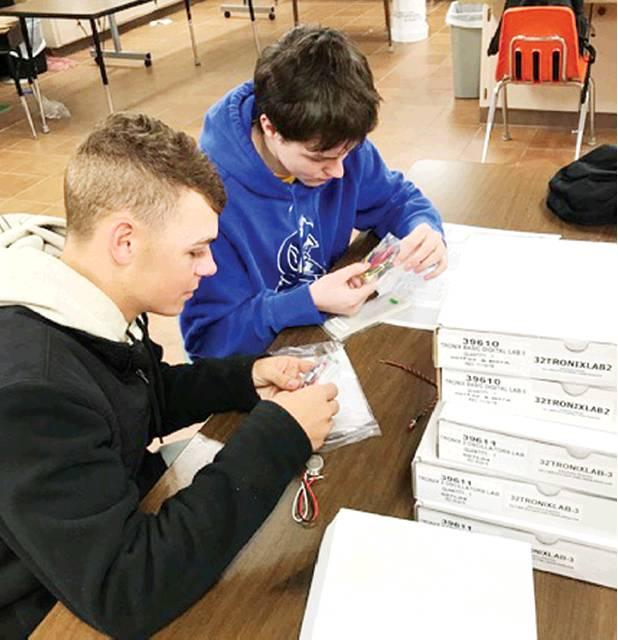
Students in the Technology Design class at Arapaho-Butler High School will now be able to learn electronics, thanks to special kits purchased for the class with help from the Alpha Nu chapter of Epsilon Sigma Alpha (ESA).
Current ESA president Rhonda Shephard said the Arapaho organization sets aside money each year to help fund school projects, and typically the donations are given to Arapaho-Butler Elementary School. But they decided to do something a little different this year.
“The grade school is pretty flush right now as far as classroom supplies go, so we talked it over and decided we would do something at the high school,” said Shephard.
“The ag program and the sports programs have their own booster clubs, but there are some outliers that don’t have any extra funding. If they want ‘extras’ they have to apply for grants to get them. Blaine was real tickled that we thought about him.”
Blaine Eagan, who is in his third year of teaching the Technology Design class at A-B, said the six kits he was able to purchase will help him give his students instruction in circuitry and circuit boards, LEDs, transistors and resistors, capacitors, and more.
“There are several careers where electronics is needed,” he said. “Things like medical equipment repair, or any kind of electrical repair really, and even in agriculture. I’ve actually got a John Deere sprayer right now that’s got circuit board trouble.”
Eagan teaches his students a wide variety of technology-related skills, including engineering basics, computers, and how to use the laser engraver and 3-D printer in the classroom. But the equipment necessary for teaching skills in basic electronics was the one thing he lacked, until now. And to work with electronics, students who don’t yet know how to solder will need to add that skill to their repertoire also.
“The kits are ‘plug and play’ and the kids can take them apart and put them back together,” said Eagan. “After a couple of years some of the smaller parts might need to be replaced, but these should last us a while.”
